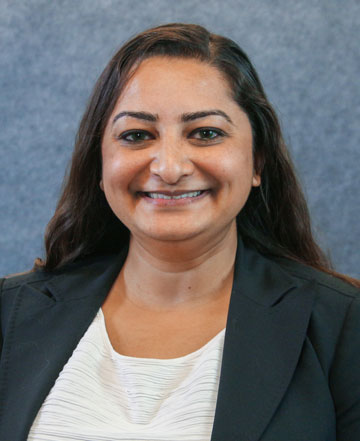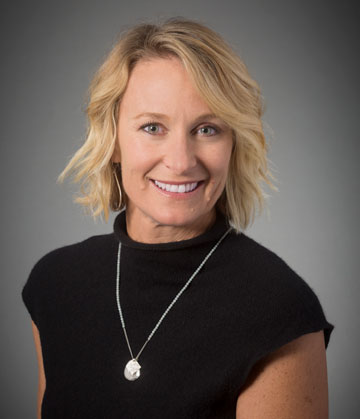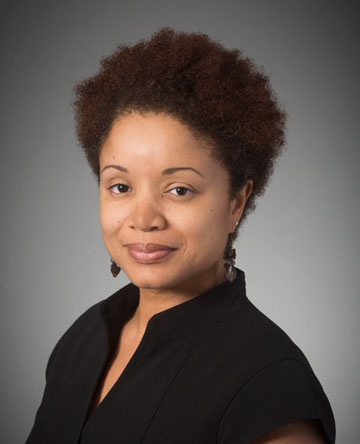By Dr. Jalin B. Johnson
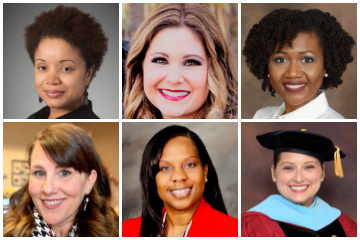
Brandman University-connected leaders share inspiration for International Women’s Day. (Top row, from left: Dr. Jalin Johnson, Dr. Tess Breen, Dr. Felicia Haecker. Bottom row, from left: Kristen M. Grimes, Dr. Kathryn R. Taylor, Dr. Tiffany D. Ware.)
When I was first asked to consider contributing my thoughts this March to coincide with International Women’s Day, “a global day celebrating the social, economic, cultural and political achievements of women,” I was reminded of some of the women whose journey I have been a part of as advocate, teacher, mentor and friend.
Representing a variety of backgrounds, areas of advocacy, and champions of those who serve, these Brandman alumna took a moment to share and recognize a woman that inspired them to achieve their goals and to be the change they wanted to see. These are their stories…
A Grandmother’s Legacy – Dr. Tess Breen
I am inspired by women who demonstrate their strength through self-sacrifice, determination, bravery, wisdom, and compassion. The most influential in my life is my very own grandmother, Charlotte DeRossett. Born in Tennessee during the Great Depression, her father was a kind and generous farmer who would set aside food each week to give to the poor. She recalls, “We were the poorest people we knew,” but her father instilled the importance of generosity from an early age.
Lesson #1: There is always someone who has it worse than we do. Be generous, always.
At the age of 15, she left home working two jobs to support her younger siblings. She always regretted not getting an education, but read every book she could get her hands on.
Lesson #2: Be a lifelong learner, hunger for knowledge, and be your own teacher.
My grandmother will never miss an opportunity to give a sincere compliment and tell you how special you are. She will be 90 this year, and attributes her health to the joy that comes from approaching life with gratitude and optimism.
Lesson #3: If you woke up today, be grateful. There is always something to be grateful for.
We celebrate Charlotte along with all the powerful female influencers who have opened the doors of possibility.
Fearless – Kristen M. Grimes
I am inspired by many women who have pushed the boundaries in fearless ways to create a world that doesn’t just accept what women have to offer, but appreciates it. One such woman that comes to the forefront is Kathrine Switzer. I often wonder if she knew the impact she would have, inspiring countless women in the pursuit of equality, the day she toed the line of the Boston Marathon in April 1967, a race that didn’t allow female participants at the time. Probably not, but she surely began to recognize the impact when the co-race director attempted to physically drag her out of the running. In that moment she stood strong and ran, most likely knowing that the world was watching and that if change was going to happen by crossing the finish line that day, she needed to find a way to keep going.
Following that race, Kathrine made it her mission to fight for equal rights for women in sports. She founded a non-profit organization, Fearless 261, with running clubs across the globe aiming to promote equality and female empowerment. Today, I am inspired by the countless women lining up for big and small races and I think of Kathrine. When I see Shalane Flanagan cross the NYC Marathon finish line with arms raised high and a cry of victory on her lips, I know she owes a debt to those who have run before her. In those moments, I know that I owe the same debt to these fearless warriors. I may not win a marathon, but I can teach my daughters and granddaughters that they are powerful in all they do; that together we can create a better future – arms raised high above our heads, a cry of victory on our lips, fearlessly moving forward across our own finish lines.
Finding my way – Dr. Felicia Haecker
As a female veteran living with PTSD, I can truly say I have been battle tested. I pride myself in being able to face difficult situations and see them through. After serving on active duty for 12 years, 6 months and 5 days, I decided to transition out of the Air Force. Imagine my surprise when the transition was much more difficult than I could have ever imagined. Here I am, a warrior, and I cannot will my civilian self to overcome my transition issues. I found myself in the grips of depression. What was I thinking? Military life was all I have ever known. I was born into a military family, both parents were active duty at one point. My entire life had been prescribed for me and now it was up to me to decide which direction I wanted my life to take. This was completely overwhelming and I began to retreat from the world.
Dr. Janice Doucet-Thompson and I would meet two years after I transitioned out of the Air Force. I was trying to understand who I was and what I wanted from this life. She would invite me to attend women’s events and I would decline, which never deterred her. I did not think I was smart or good enough, to be amongst these women. Always with a smile she would say, “Okay maybe next time,” reminding me that my voice as a female veteran was needed. She believed in me when I did not believe in myself. It would take nearly four years for me to join her at one of these events. I found myself providing new perspectives to others on the female veteran experience and people were listening. I found my confidence, my voice, and my path. Janice inspired me to launch my own company for female veterans. I hope to do for other female veterans what Janice did for me.
Shirley Chisholm: Dare to Change the World – Dr. Kathryn R. Taylor
This International Women’s Day comes on the heels of an unprecedented number of women announcing their intent to run for President of the United States. I am inspired by a woman who declared her intent to run for President, 47 years ago. Shirley Chisholm was able to catapult over societal limitations placed on people because of race, gender, religion, and economic status only to land standing firmly for social justice in America. Shirley Anita St. Hill Chisholm began as an educator that recognized the need to change her platform with a purpose to evoke transformational change in education. She made history by becoming the first African American woman elected to Congress in 1968, and the first woman & African American to seek the nomination for President, from one of two major political parties in 1972. Known as “Fighting Shirley,” she introduced more than 50 pieces of legislation and was a co-founder of the National Women’s Political Caucus in 1971.
As an educator and through my work mentoring young girls, I deem it necessary to educate young women of today about the trailblazing women of yesterday. Chisholm understood her true purpose to champion racial and gender equality. Her lived experience as an African American woman born to two immigrant parents, set the framework to channel her passion toward becoming an advocate for others oppressed by similar intersectionalities. I am encouraged to continue working as an agent of change by remembering the legacy of dynamic women from the past, celebrating phenomenal women of today, and preparing our young girls to lead the charge of social justice in the future. Chisholm said, “I want to be remembered as a woman…who dared to be a catalyst of change.” As we celebrate International Women’s Day, I hope to inspire more woman to dare to change the world.
Inspirational Words from Jennifer Lopez – Dr. Tiffany D. Ware
As a woman of courage, ambition, and strength, Jennifer Lopez has inspired me throughout my life: “As women, we almost never give ourselves enough credit for what we’re capable of, for what we endure and how giving we are. Part of loving yourself is about forgiving yourself – which is something I’ve always struggled with. It’s the messy parts that make us human, so we should embrace them too – pat ourselves on the back for getting through them rather than being angry for having gotten into them in the first place. Because loving yourself is ultimately about self-acceptance, about embracing every part of who you are. And that’s never just one thing.”
Lopez was someone I could always identify with. Being Hispanic and seeing her flourish into a successful business-woman and leader; has given me the courage to never give up. Today, as a wife, mother, and combat Army veteran, I have seen so many things and learned so much throughout my life experiences. Her words resonate with me. I have made it my mission to own who I am, mold it, and create it into a beautiful leadership experience. I can say today, that I am the first in my family to accomplish many milestones; the greatest, becoming Dr. Tiffany Ware. Without Lopez’ words of encouragement and her ability to share her milestones, I would not have the momentum to do what I do now. Today we celebrate and honor all the wonderful women around the world who helped shaped us all.
On March 8, as you’re Looking at Leadership, consider supporting one of the many International Women’s Day events in your area. Whether we attend a panel discussion or book fair, support a GoFundme campaign (intended to raise money for young girls to see Captain Marvel), or share a story of an amazing woman in our lives, the opportunity to celebrate outstanding women who lead is something we can do year round.
 Jalin B. Johnson, Ed.D., is an associate professor in the School of Business and Professional Studies at Brandman University, focusing on business and organizational leadership. She is a regular contributor on issues of leadership and current events.
Jalin B. Johnson, Ed.D., is an associate professor in the School of Business and Professional Studies at Brandman University, focusing on business and organizational leadership. She is a regular contributor on issues of leadership and current events.

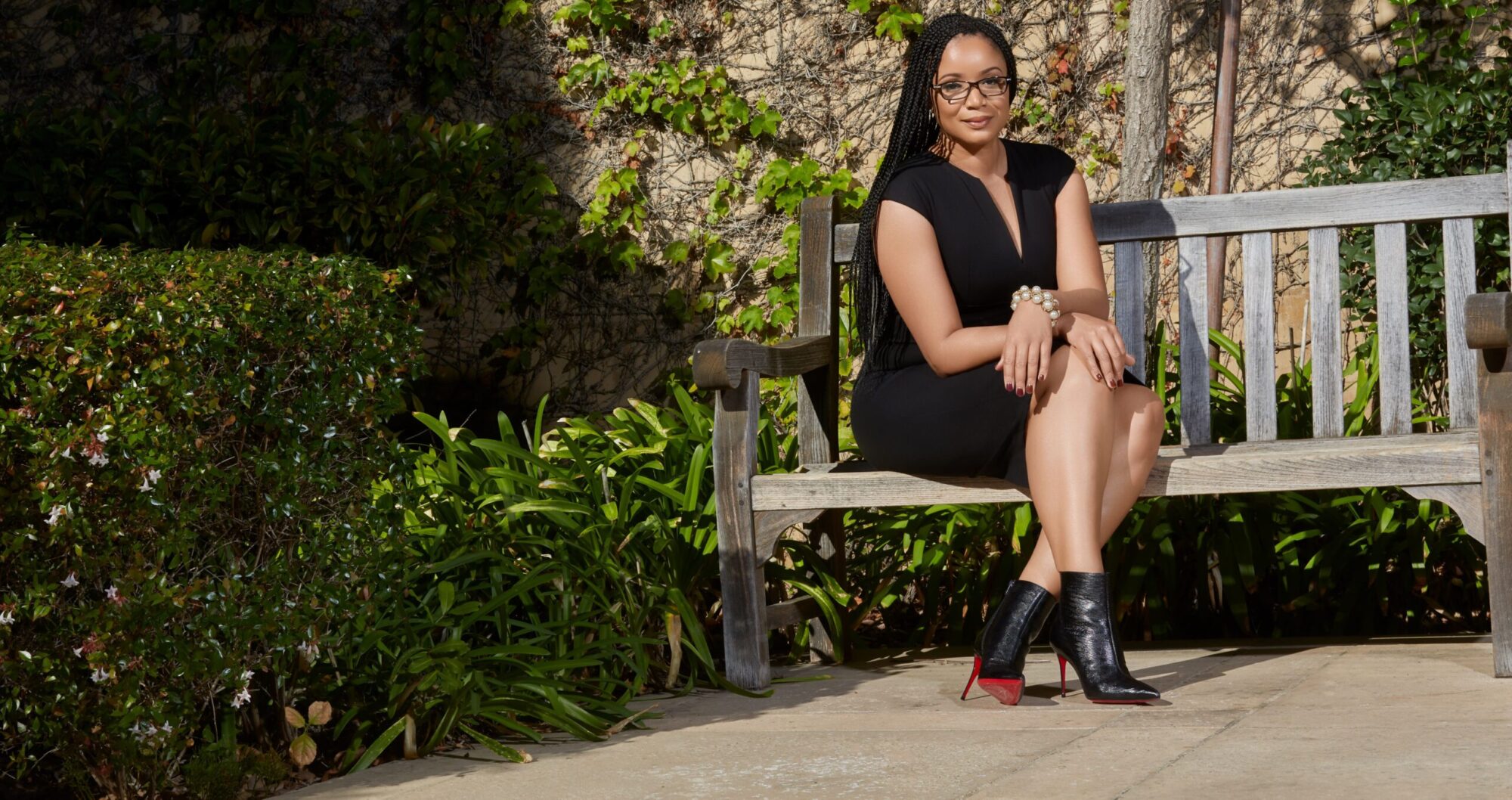
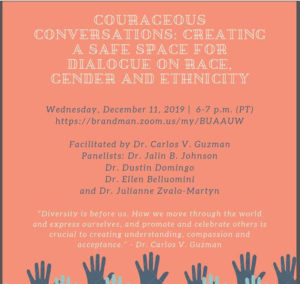
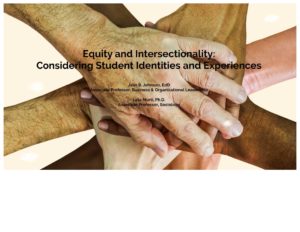

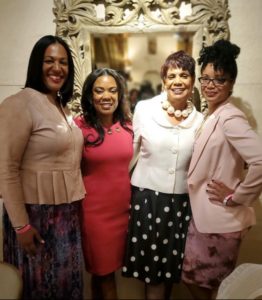 Wilson’s ‘
Wilson’s ‘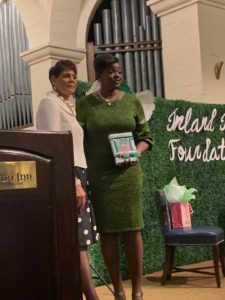 Dr. Wilson (pictured here with
Dr. Wilson (pictured here with 

 Jalin B. Johnson, Ed.D., is an associate professor in the School of Business and Professional Studies at Brandman University, focusing on business and organizational leadership. She is a regular contributor on issues of leadership and current events.
Jalin B. Johnson, Ed.D., is an associate professor in the School of Business and Professional Studies at Brandman University, focusing on business and organizational leadership. She is a regular contributor on issues of leadership and current events. Jalin B. Johnson, Ed.D., associate professor of business and organizational leadership and J. Murphy, Ed.D., vice chancellor of instructional innovation presented as part of the WASC “Designing Professional Development: Faculty and Courses” moderated session. The presentation focused on Brandman’s Course Developer Certification (BCDC) program and Diversity Cognizant Curriculum.
Jalin B. Johnson, Ed.D., associate professor of business and organizational leadership and J. Murphy, Ed.D., vice chancellor of instructional innovation presented as part of the WASC “Designing Professional Development: Faculty and Courses” moderated session. The presentation focused on Brandman’s Course Developer Certification (BCDC) program and Diversity Cognizant Curriculum.
 Jalin B. Johnson, Ed.D., is an associate professor in the School of Business and Professional Studies at Brandman University, focusing on business and organizational leadership. She is a regular contributor on issues of leadership and current events.
Jalin B. Johnson, Ed.D., is an associate professor in the School of Business and Professional Studies at Brandman University, focusing on business and organizational leadership. She is a regular contributor on issues of leadership and current events.



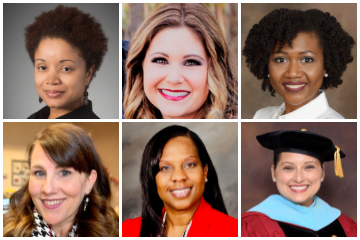

 Jalin B. Johnson, Ed.D., is an associate professor in the School of Business and Professional Studies at Brandman University, focusing on business and organizational leadership. She is a regular contributor on issues of leadership and current events.
Jalin B. Johnson, Ed.D., is an associate professor in the School of Business and Professional Studies at Brandman University, focusing on business and organizational leadership. She is a regular contributor on issues of leadership and current events.
 Jalin B. Johnson, Ed.D., is an associate professor in the School of Business and Professional Studies at Brandman University, focusing on business and organizational leadership. She is a regular contributor on issues of leadership and current events.
Jalin B. Johnson, Ed.D., is an associate professor in the School of Business and Professional Studies at Brandman University, focusing on business and organizational leadership. She is a regular contributor on issues of leadership and current events.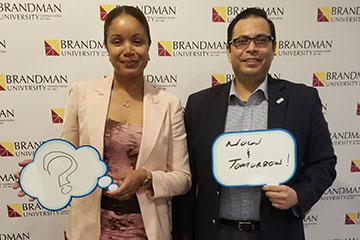

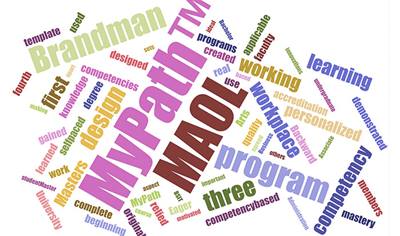 The bell has rung on a new year – a time for reassessing the way things have always been done and trying something new.
The bell has rung on a new year – a time for reassessing the way things have always been done and trying something new.